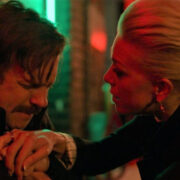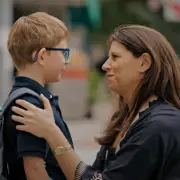Fantastic Fest Review: MID90s: Jonah Hill Graduates With Honors
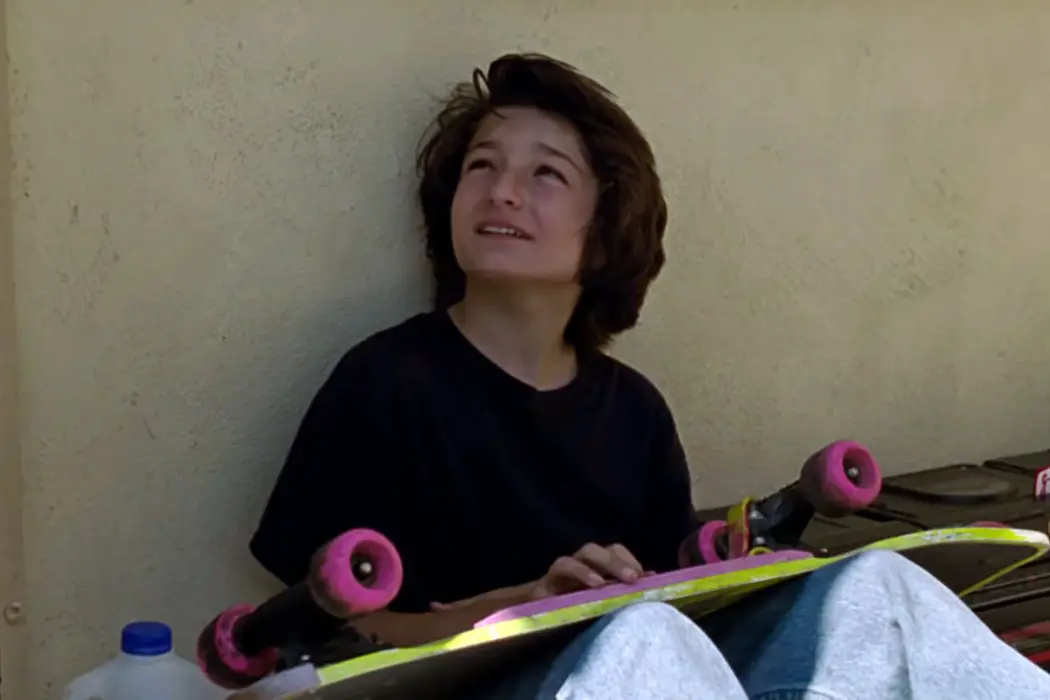
Hazem Fahmy is a poet and critic from Cairo. He…
In every single Q&A he’s done so far, including at Fantastic Fest, Jonah Hill has stressed that acting is the greatest film school there is. Corny as this statement might be, it never gets old because it keeps proving true. Nothing short of a breakthrough for Hill, Mid90s has smoothly joined the ranks of A24’s incredible slate of coming-of-age debuts. What started with Greta Gerwig‘s majestic Lady Bird and Bo Burnham‘s endearing Eighth Grade, continues with this heartwarming tale of adolescent shenanigans and the ugly mundaneness of growing up.
Set in Los Angeles in – you guessed it– the middle of the 90s, the film follows Stevie (Sunny Saljic), a shy thirteen year-old who lives with his depressed single mom, Dabney, (Katherine Waterston) and unstable older brother, Ian, (Lucas Hedges). Tired of his dysfunctional home, Stevie takes to the streets to try and fill his time with something other than screaming matches. After randomly walking into a skate shop, he overhears a bizarre conversation between a group of skater friends and decides they’re pretty cool. He trades his brother some CD’s for his old board and starts hanging around the skate park until the kids notice him. They do, and it’s not long before he joins, welcomed into the crew and earning the nickname Sunburn.
Young & Reckless
At its heart, Mid90s deals with the euphoria of being young and feeling like you’ve finally found a group in which you can belong. In the same vein, it is also about that high’s inevitable fallout. Though anything but generic, Stevie’s arc is a stand-in for every teenage boy who has sought to find himself in the cool kids around the block, which is all of them, ever. As much as this is a comedy, and a hilarious one at that, Hill pays painstaking attention to the way boys construct their confidence and self-worth as adolescents, and how those constructs shape the men they become. “You’re at that age before guys become dicks” a girl prophetically tells Stevie at a party. Later that very night, he hits his brother back for the first time, and a part of his childhood dies.
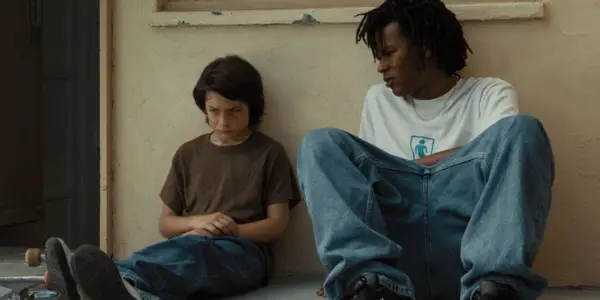
One can’t underestimate how much of a shift this film marks in Hill’s career, and not just because it’s his first shot at directing. To put it mildly, much of his earlier work has not exactly aged well. Though not without its flaws, Mid90s speaks volumes to Hill’s growth as an artist, both aesthetically and narratively. Whereas his characters’ misogyny have often been brushed aside or even celebrated, here it’s put under the microscope and dissected. The film strikes a delicate balance between poking fun at the ridiculous things kids are likely to say at that age, and especially in that era (e.g. “don’t say thanks, that’s gay”), and revealing the fragility and insecurity that lies beneath.
Boys 2 Men
Though I would’ve liked to see the narrative push back against the kids’ toxic habits a bit more, the positive side of that is watching them slip-up, fall (sometimes literally) and get up, as the poster so aptly puts it. There’s a refreshing current of genuine male vulnerability that we too often don’t see in American film, especially coming-of-age films by male directors. In one way or another, Stevie and all his friends, not to mention his brother, are just trying to cope with a world that has failed to raise or guide them. In this way, conversations that seem completely random and aimless, a big selling point of the film’s charm, take on a larger meaning and place in the boys’ lives and their pursuit of community. These kids pick and call one another some of the worst names, but at the end of the day every single one of them is willing to stay up all night making sure their friend gets out of the hospital okay.
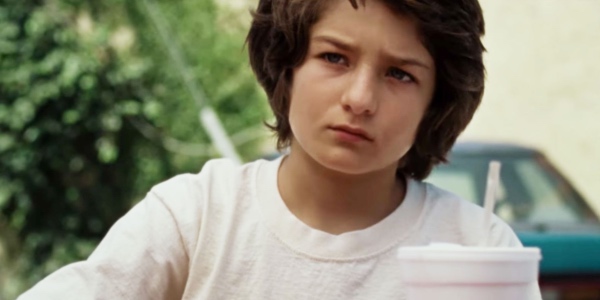
But stellar as it is, Hill’s script does only half the lifting here, whereas the cast completely steals the show. Each of the skater boys is an absolute revelation, masterfully balancing the comic bravado of their characters with the pain and disillusionment that undercuts all of them. Everyone is putting in the work here. Na-kel Smith (Ray) and Olan Prenatt (Fuckshit, yes that’s his character’s nickname) have a natural and seamless chemistry as the crowned leaders of the group. Gio Galicia (Reuben) and Ryder McLaughlin (Fourth Grade) do extraordinary work with the little dialogue they’re given, bringing a powerful screen presence to every scene they’re in, even when they’re silent. Young actors, especially in dramas, tend to either perform mechanically or over the top, but these kids fit right into their roles.
Mid90s: Conclusion
In a decade over-saturated with cheap nostalgia, it is a delight to see a film about the 90s that doesn’t try to be about the 90s. Rather than overwhelm the audience with reference after reference, Mid90s is more interested in zoning in on the particular circumstances of a time and place to tell a timeless story of self-discovery and the struggle to assert oneself in an often cruel world. Jonah Hill has learned well.
What’s your favorite 90’s film? Tell us your thoughts in the comments below!
Mid90s will be released in theaters in the US on October 19, 2018. For all international release dates, see here.
Does content like this matter to you?
Become a Member and support film journalism. Unlock access to all of Film Inquiry`s great articles. Join a community of like-minded readers who are passionate about cinema - get access to our private members Network, give back to independent filmmakers, and more.
Hazem Fahmy is a poet and critic from Cairo. He is an Honors graduate of Wesleyan University’s College of Letters where he studied literature, philosophy, history and film. His work has appeared, or is forthcoming in Apogee, HEArt, Mizna, and The Offing. In his spare time, Hazem writes about the Middle East and tries to come up with creative ways to mock Classicism. He makes videos occasionally.


